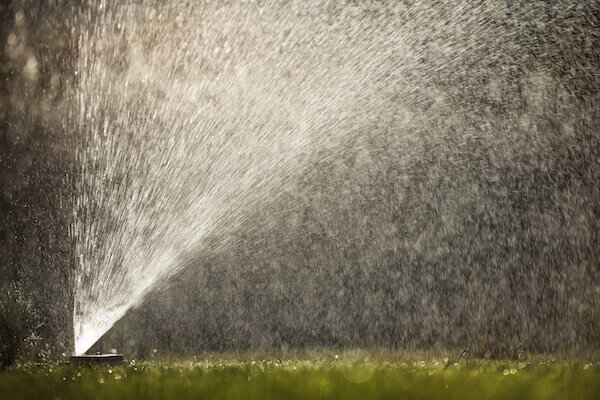
Tips for Successfully Watering Your Lawn
Proper irrigation is a very important key to effectively maintaining your lawn in Florida. Homeowners, developers, and sports turf managers need to be cognizant of the negative effects that improper irrigation can have on the aesthetics of your home or property, the cost of lawn maintenance, and the overall health of your lawn.
When it comes to irrigation issues, problems can arise with both under-watering and over-watering of your lawn. Over-watering can lead to issues such as shallow root systems, reduced drought tolerance, reduced tolerance to environmental stress, and increased vulnerability to weeds, pest insects, and turf diseases. Under-watering can lead to issues such as discoloration and wilting of your turf.
Proper irrigation, like all aspects of Florida lawn care, can depend on many factors, some of which are discussed below.
Geographic Location – The region of Florida in which you live can have a major impact on the amount of water your lawn needs. The varying temperate zones and weather patterns throughout the state of Florida can seriously impact how you will irrigate your lawn. Contact your lawn care specialist for location-specific irrigation recommendations.
Yard Location – Does your lawn receive full sun or shade? Are you on an incline? What kind of other Florida-friendly plants reside in your yard? Answering questions like these will provide insight into the specific irrigation schedule and requirements needed for your lawn. A lawn care specialist can help you divide your lawn into sections and can explain the most efficient and impactful way to irrigate each section.
Type of Soil – The type of soil in which your turf variety thrives will affect the amount of water the turf will need to be healthy. Sandy soils typically require more water, while the heavier soils common in northern Florida typically don’t require as much water for a healthy lawn. In areas where limestone is less than 12 inches below the surface, less water will also be required to maintain a healthy lawn, as roots will not be able to grow past the limestone barrier. Talk to your lawn care specialist to determine how the soil in your yard will affect irrigation practices.
Type of Grass – There are many different varieties of turf and the watering requirements vary for each variety. It is important to ask your sod installer for irrigation instructions for the specific variety of sod you’re planting to ensure healthy growth of your lawn.
While it may be tempting to set the timer on your irrigation system and let the controls do the work, it is not always the best course of action for a truly healthy lawn. If you pay close attention to your lawn and respond to it properly, you can increase your chances of a healthy lawn. Make sure to look out for the following issues:
Wilt Signs
A lawn is ready for water when the leaf blades show at least one of these three wilt signs:
- Leaf blades begin to fold in half lengthwise.
- Grass takes on a bluish cast.
- Footprints remain visible in the lawn long after being made.
While you may think watering every day is the key to a healthy lawn, experts at the University of Florida recommend that you irrigate when about 50 percent of your lawn shows one of the above signs unless rain is in the forecast in the next 24 hours. This will establish the root system and foster a healthy, hearty lawn.
The thought of a wilting lawn can make most developers and homeowners cringe, but in reality it’s not as scary as it seems. If you have an established root system, your grass will be drought tolerant enough to survive until the next watering.
As discussed above, the amount of water your lawn needs depends on many factors. By paying close attention to your irrigation cycles and rainfall, you can ensure a properly irrigated lawn that is lush and healthy. A healthy lawn can help cool your home, protect the environment, and provide an ecosystem for local wildlife and your family to enjoy.
Remember that no matter what your questions are about watering, your Duda Sod installation specialists can answer them. We can start by helping you choose the best variety of sod for your lawn and teach you how to take care of your home’s largest living amenity after installation. If you have questions about proper irrigation, call us today.